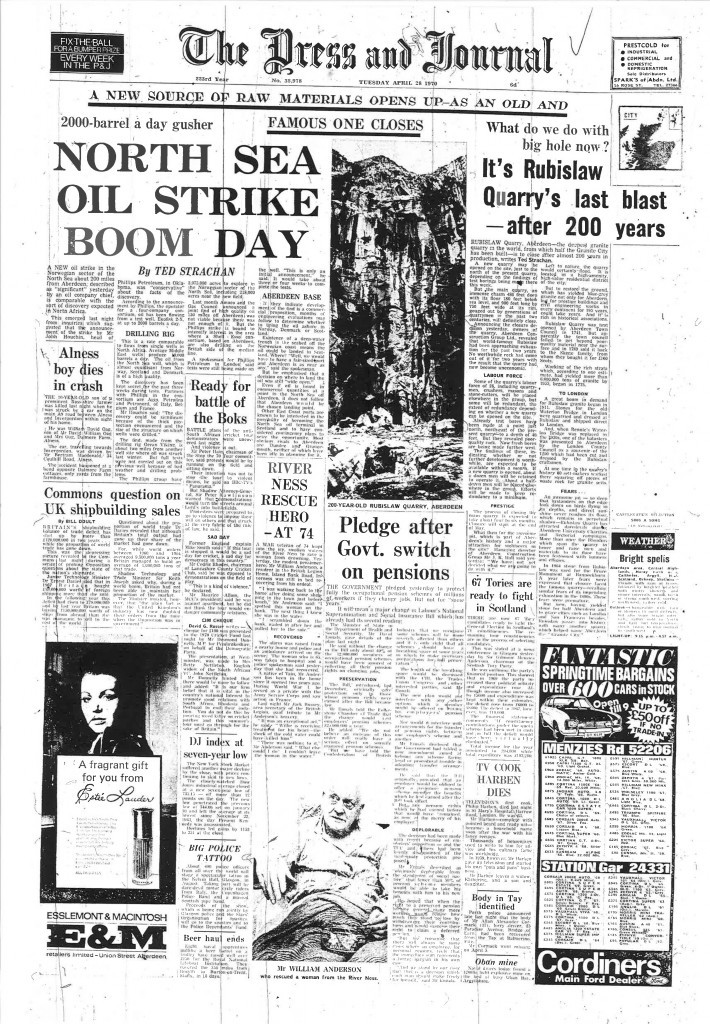
Never was the transition from one industrial age to another more starkly illustrated than in this edition of the north-east of Scotland’s best-selling newspaper in April 1970.
The Press and Journal front-page heading said it all: “A new source of raw materials opens up as an old and famous one closes”.
The lead story – or splash, as it’s known in newspaper parlance – proclaimed a 2,000-barrel a day gusher and a “North Sea oil strike boom day”.
Sharing joint billing on the front page was the demise of Rubislaw Quarry, the deepest granite quarry in the world – which was to close after 200 years in production.
Rubislaw helped Aberdeen become the Granite City, and created its distinctive architecture. It created wealth and opportunity as the stone was exported around the world.
Rubislaw Quarry had been opened by the town council in 1741, but it was the Skene family who bought it 1789 and worked the rich strata that yielded more an estimated 6,000,000 tons of granite by 1955.
The oil had been discovered by American oil firm Phillips. Oil flowed from the test well – Ekofisk 2-X at up to 2,000 barrels a day – comparable to flows found in single wells in North Africa.
Production eventually began in 1971 and by 2013 Ekofisk was producing 127,000 barrels per day. 45 years on, the Ekofisk complex has been developed in stages, and upgraded and modernised several times.
In 1970, John Houchin, head of Phillips Petroleum in Oklahoma said: “The discovery could be significant because of the thick pay section encountered and the size of the structure on which well were drilled.”
The Ekofisk announcement came just weeks after Amoco announced a high quality oil strike 150 off Aberdeen but decided it was not viable because there was not enough of it.
Reporter Ted Strachan wrote: “But the Phillips strike is bound to intensify interest in the area where a Shell-Esso consortium, based on Aberdeen, are also drilling on the British side of the median line.”
Strachan speculated that the Norwegian oil could come ashore in Aberdeen. He quoted a Phillips spokesman as saying: “Well, we would need a fair-sized port and Aberdeen is as near as any.” He added the decision on where to land the oil was still “wide open”.
The report adds: “Even if oil is found in commercial quantities it does not follow that Aberdeen would be the chosen landing point.
“Other east coast ports are known to be interested in the possibility of becoming the North Sea oil terminal in Scotland and to have considered contingency plans to seize the opportunity. Most obvious rivals to Aberdeen are Dundee and Grangemouth, neither of which have been idle in planning for it.”
Through a combination of luck, geography and savvy lobbying, it was Aberdeen that became “Europe’s oil capital”. It was to the city’s immense benefit that its fortunes were so massively transformed by what people found buried deep inside rock, rather than what was carved from it.